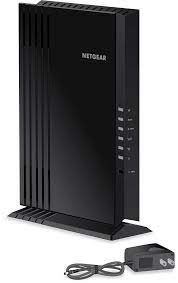In the world of web development, backend technologies play a crucial role in determining the functionality and scalability of a project. PHP and Node.js are two popular technologies that power millions of websites and applications across the globe. But how do these two stack up against each other, and which one should you choose for your next project? In this article, we’ll dive deep into a comparison of PHP and Node.js, evaluating their performance, use cases, and more.
We’ll explore their pros and cons, the types of applications they are suited for, and factors to consider when choosing between these two powerful platforms.
Understanding PHP
PHP, which stands for Hypertext Preprocessor, is one of the oldest and most widely-used server-side scripting languages.
Key Features of PHP:
- Ease of Learning: PHP is known for its beginner-friendly syntax, making it an excellent choice for new developers.
- Wide Community Support: Since PHP has been around for decades, it has a large and active community, contributing to extensive libraries, frameworks (such as Laravel and Symfony), and countless resources.
- Integration with Databases: PHP integrates seamlessly with databases like MySQL, PostgreSQL, and SQLite, making it a go-to solution for database-driven web applications.
- Cross-Platform Compatibility: PHP can run on almost any platform, from Linux to Windows, making it flexible and easy to deploy.
Advantages of PHP:
- Cost-effective: PHP is open-source, meaning it’s free to use, and its deployment costs are low.
- Server-Side Processing: It handles server-side tasks efficiently, particularly in environments with heavy reliance on databases.
- Established Ecosystem: With popular CMS platforms like WordPress built on PHP, it remains relevant and widely adopted.
Disadvantages of PHP:
- Limited Scalability: While PHP performs well for small and medium-sized projects, it can struggle with scaling in large, high-traffic applications without proper optimization.
- Concurrency Handling: PHP is traditionally synchronous, meaning it processes one task at a time. This can be a drawback for applications requiring real-time data processing.
Understanding Node.js
Node.js is a runtime environment that enables JavaScript to be executed server-side. It allows developers to build fast, scalable network applications, especially those requiring real-time interaction, such as chat applications or collaborative platforms.
Key Features of Node.js:
- Non-blocking I/O: Node.js is built on an asynchronous, event-driven architecture, making it highly efficient for handling multiple tasks simultaneously without getting bogged down by slower tasks.
- Single Language for Frontend and Backend: With Node.js, developers can use JavaScript for both client-side and server-side development, streamlining the development process.
- Rich Ecosystem: Node.js has a vibrant ecosystem with a wide array of packages and libraries available via npm (Node Package Manager).
Advantages of Node.js:
- High Performance: The non-blocking, asynchronous nature of Node.js allows it to handle thousands of connections at once, making it ideal for scalable applications.
- Full Stack JavaScript: Using JavaScript on both the client and server sides allows developers to work more efficiently, creating a seamless development experience.
- Event-Driven Architecture: This makes Node.js perfect for applications that require real-time interaction and constant data flow.
Disadvantages of Node.js:
- Callback Hell: Node.js can be tricky to manage due to its reliance on callbacks, especially when dealing with complex code structures.
- Limited Support for CPU-Heavy Operations: While Node.js excels in handling asynchronous I/O, it may not be the best choice for applications that require heavy computations, such as scientific modeling or large-scale data processing.
PHP vs Node.js: A Comparative Analysis
1. Performance and Scalability
- PHP: While PHP performs well for traditional web applications, it can lag in scenarios where real-time data processing or asynchronous tasks are critical. It handles tasks one at a time, which can slow down performance in some use cases.
- Node.js: Node.js shines in handling multiple tasks simultaneously due to its non-blocking architecture.
2. Development Speed
- PHP: PHP’s wide range of frameworks, like Laravel and Symfony, helps speed up development, especially for content management systems, blogs, and eCommerce platforms.
- Node.js: With JavaScript running on both the client and server sides, developers can move quickly and build robust applications without switching between languages.
3. Learning Curve
- PHP: PHP is considered easier to learn for beginners, especially with its simple syntax and vast amount of online tutorials.
- Node.js: While JavaScript is a more universal language, mastering Node.js may take more time due to its asynchronous nature and the challenges of managing callbacks and promises.
4. Use Cases
- PHP: PHP excels in content-heavy applications like blogs, websites, and eCommerce platforms. It’s a favorite for building content management systems like WordPress.
- Node.js: Node.js is perfect for applications requiring real-time communication, such as chat apps, collaborative tools, and streaming services.
When to Choose PHP
PHP remains an excellent choice for:
- Content Management Systems: If you’re building a blog, portfolio, or CMS-driven website, PHP’s vast libraries and frameworks are perfectly suited.
- Small to Medium-Sized Websites: For businesses with moderate traffic or database-driven websites, PHP provides the stability and ease needed for rapid development.
When to Choose Node.js
Node.js is ideal for:
- Real-Time Applications: If your project requires real-time communication or continuous data streams, Node.js is the go-to solution.
- Scalable, High-Traffic Applications: For large-scale applications that need to handle thousands of simultaneous connections, Node.js performs efficiently due to its event-driven, non-blocking architecture.
- Single Language Projects: If you want to use JavaScript across your entire application stack, Node.js makes this possible by running JavaScript on both the frontend and backend.
Conclusion
Choosing between PHP and Node.js largely depends on the needs of your project. If you’re building a content-heavy website, PHP is still one of the best choices, especially for its simplicity and ease of integration with databases. On the other hand, if your project involves real-time data, scalability, and fast I/O operations, Node.js offers better performance and flexibility.
Both technologies are powerful in their own right, and the decision ultimately comes down to the specific requirements of your application. By understanding the strengths and weaknesses of each platform, you can make an informed choice that aligns with your project goals.



